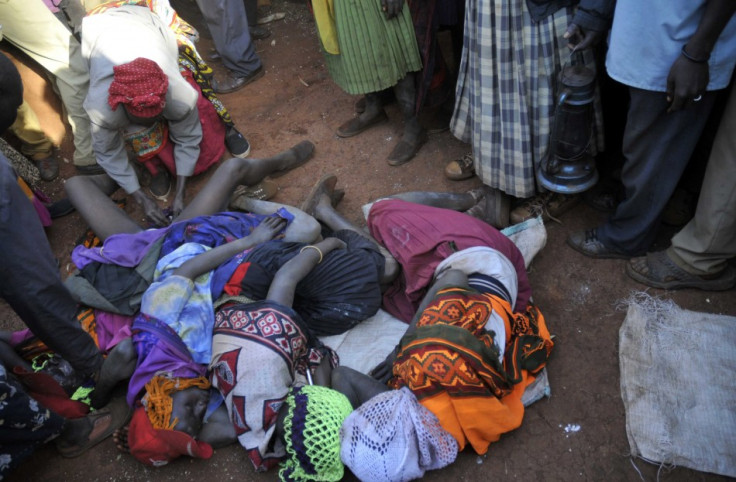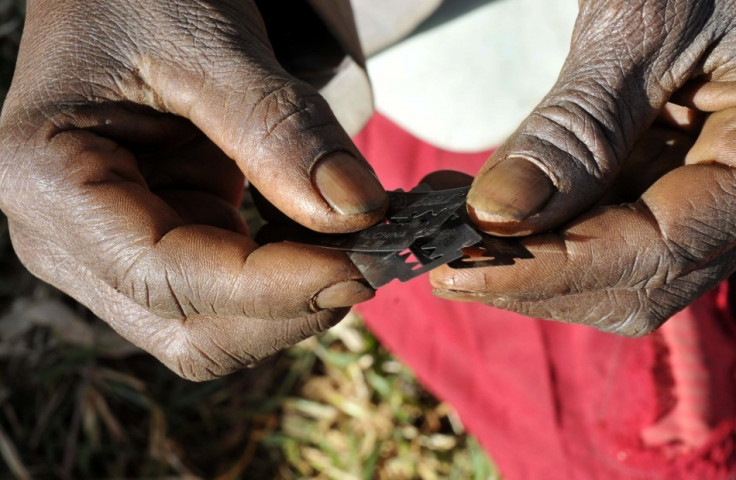How to Beat Female Genital Mutilation in Britain

The number of UK women and teenage girls subjected to female genital mutilation (FGM) has risen to 170,000 over the last decade, according to a report written by author and journalist Julie Bindel.
Bindel's report shows that many hospitals, schools and police in the UK lack specific training on FGM.
Since FGM is perceived as a taboo among affected communities, there is a great need to create safe spaces to talk about the practice and its prevention.
IBTimesUK spoke with Manor Gardens, a charity whose team includes women who have been affected by FGM, and who engage with affected communities to help prevent the practice.
FGM training should be treated as a mainstream child protection issue and therefore automatically included in the training agenda for medical staff, social and school workers.
Eva Del Rio Hernandez, FGM Initiative London coordinator told IBTimes UK: "We have extensive experience of training professionals working with children and young people so that they have a greater understanding of FGM and what they should be doing to protect the girls and young women that they have contact with.
"By providing clear and relevant information and the direct perspective of one of our community advocates we can empower professionals to protect young girls," she said.
As there is no obligation for statutory services to receive training on FGM, it is not always possible for Manor Gardens' teams to reach as many professionals as is necessary to ensure widespread knowledge and understanding
"To begin to tackle this, we have started to train students of relevant professions," Del Rio said.
The reasons why FGM is practiced worldwide are multiple:
FGM can be an important part for cultural identity and traditions; some families might fear the risk of being socially isolated from their communities if they don't have their daughters' genitals mutilated
FGM might be also a requirement for girls in order to preserve their virginity and therefore be suitable for marriage
The practice is sometimes perceived as a religious requirement although it "it has been stated by religious leaders that FGM is not a religious requirement or obligation [..] it has no link with Islam and [..] is not condoned by Christian teachings or the Bible," Del Rio explained.
Other reasons that justify FGM are hygiene and cleanliness, increasing sexual pleasure for the male, preserving family honour or enhancing fertility (however, FGM can cause infertility).
Information as a key factor to tackle FGM

According to Del Rio, information is one of the key factors that can help prevent genital mutilation. Many families are not aware of the health and psychological consequences behind FGM.
"FGM can have detrimental effects on the physical and emotional health and development of girls. "FGM's effects vary but can include infections, chronic pain, cysts, abscesses, fertility and childbirth problems [...] In some instances, it can lead to death," Del Rio continued.
"FGM survivors can suffer severe psychological trauma and depression as a result of their experiences. [...] By working directly with women we have seen the need for more tailored services for FGM survivors and in particular services that help them to address the mental and emotional health consequences of this practice."
Knowledge regarding the current legislation in UK could also help reduce the practice.
"In the UK, practicing, counselling or abetting FGM or taking a child overseas to subject her to the practice, is a crime punishable with up to 14 years imprisonment. FGM should not only be seen as a criminal act but as a human rights violation, child abuse and violence against women and girls," Del Rio said.
Manor Gardens trains people in order to understand sign that a genital mutilation could occur. The warning signs are, for example, if a girl talks about plans to have a "special procedure", a special occasion to "become a woman", or a long holiday to her country of origin or another country where the practice is prevalent.
In any cases where someone suspects a girl might be at risk of FGM it is necessary to report it, Del Rio said. The first point of contact should be the relevant local authorities' Children' Services Team and the police.
© Copyright IBTimes 2025. All rights reserved.






















